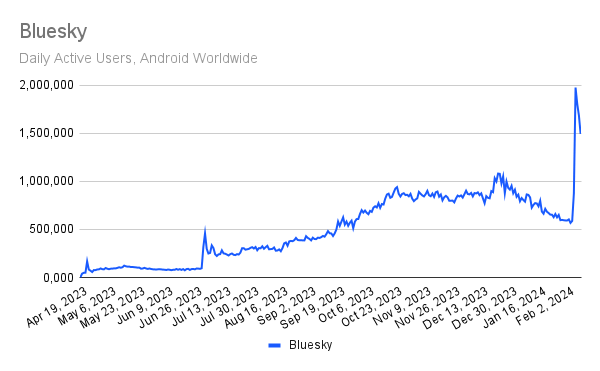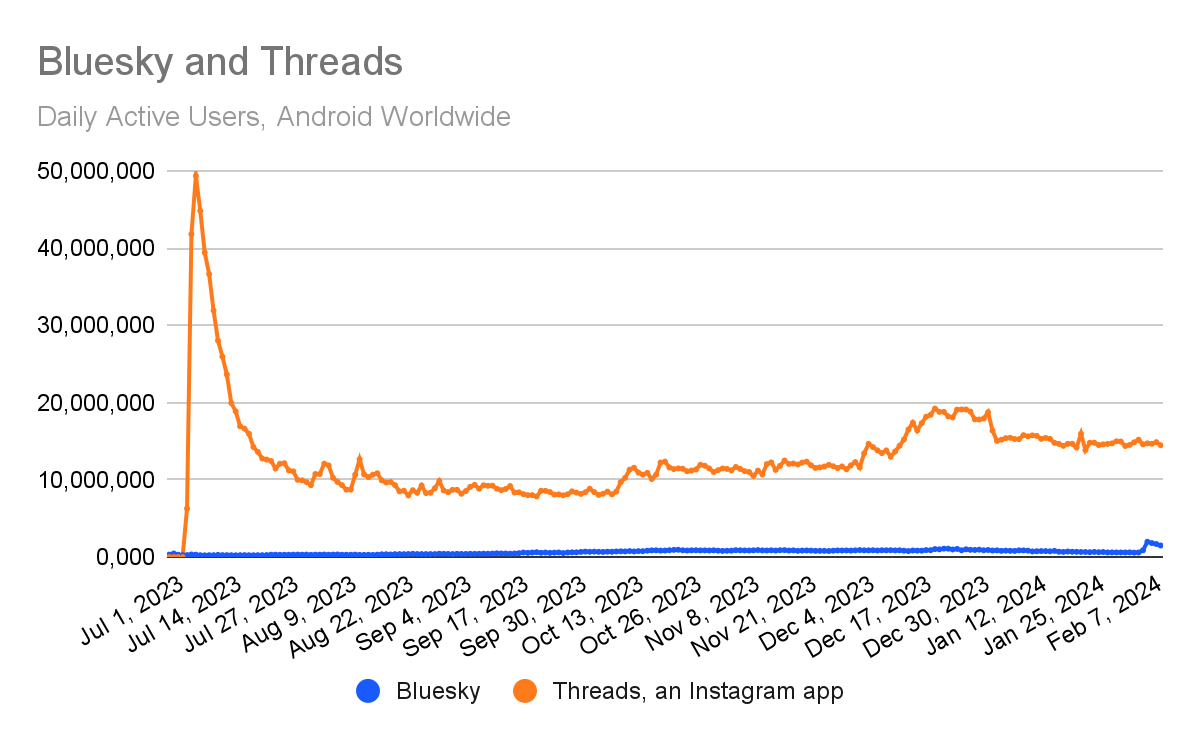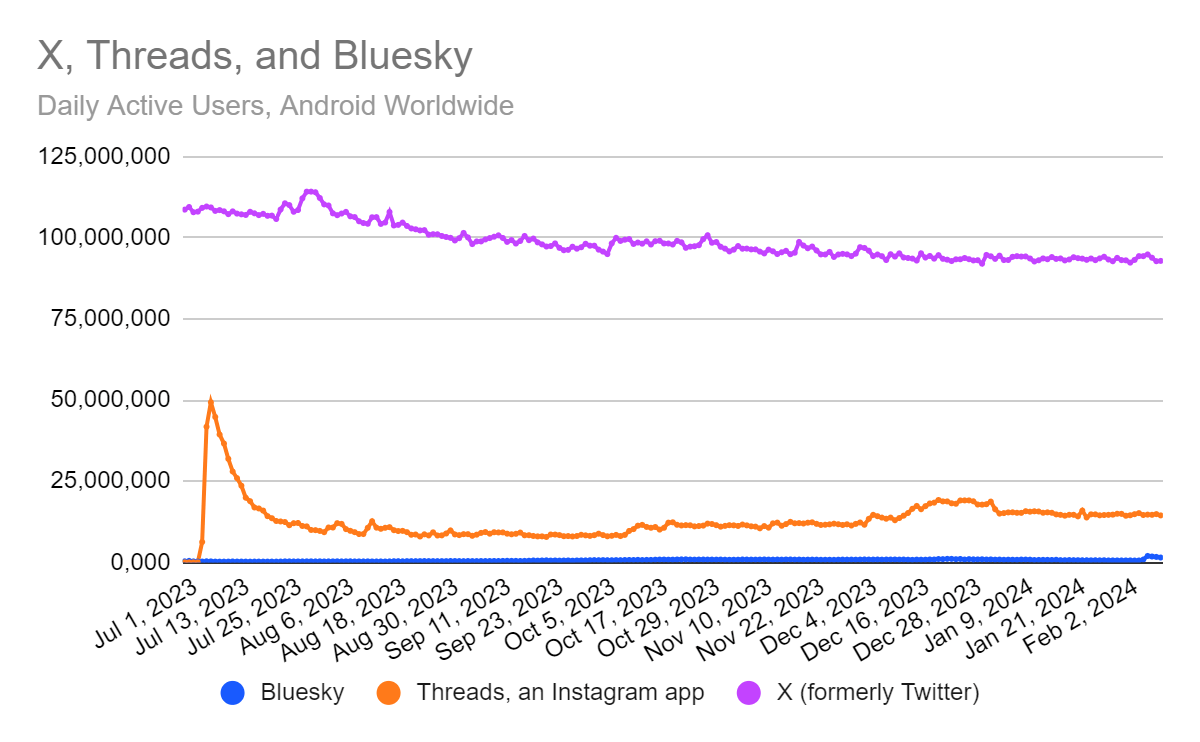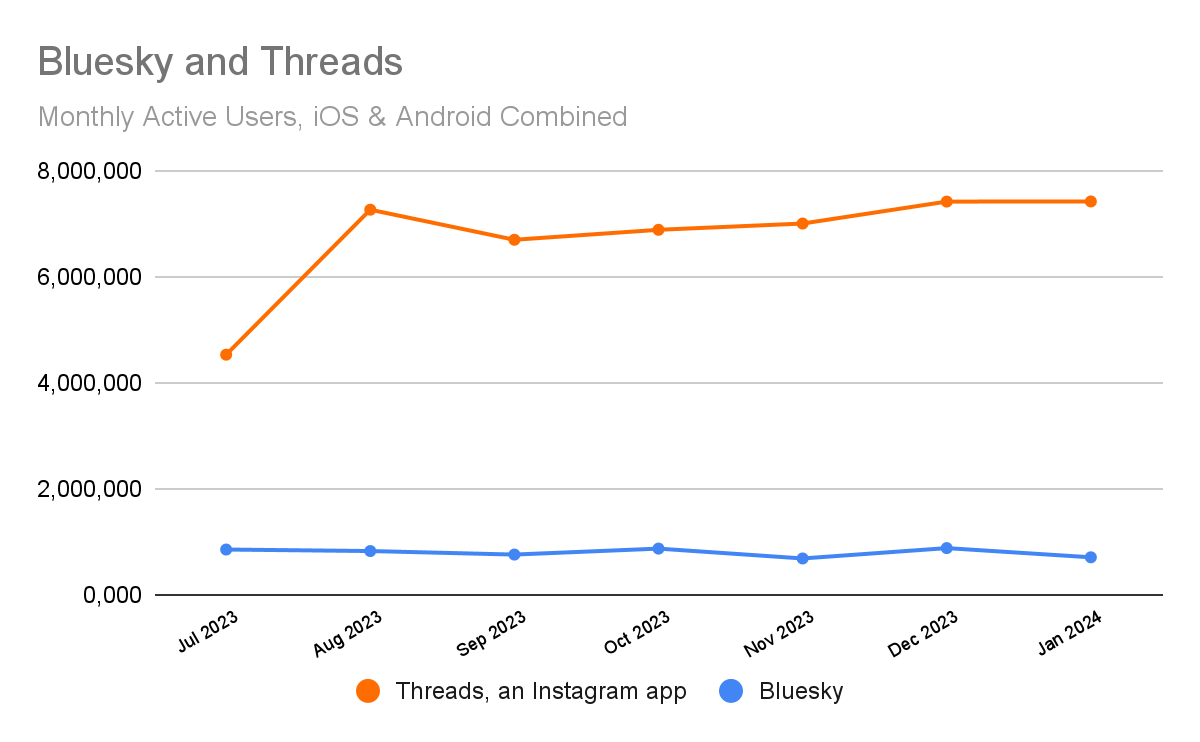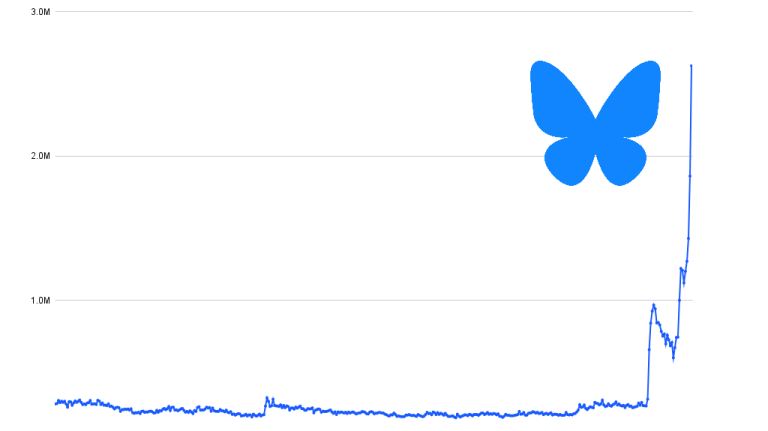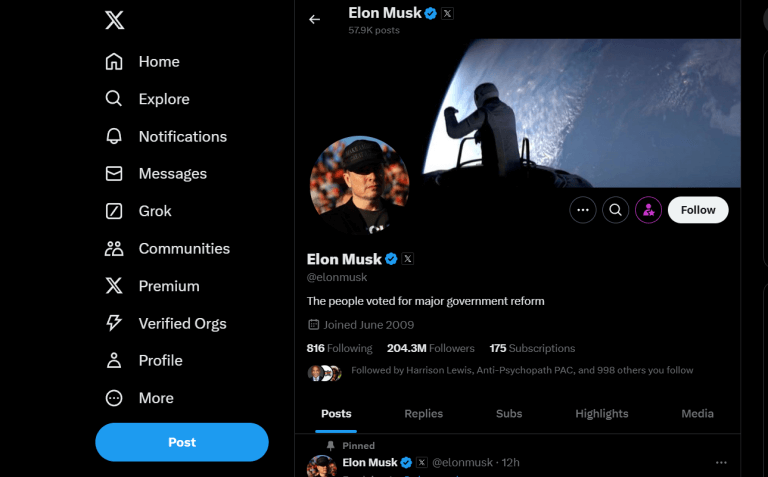Bluesky Tripled Usage After End of Invite Code Hurdle
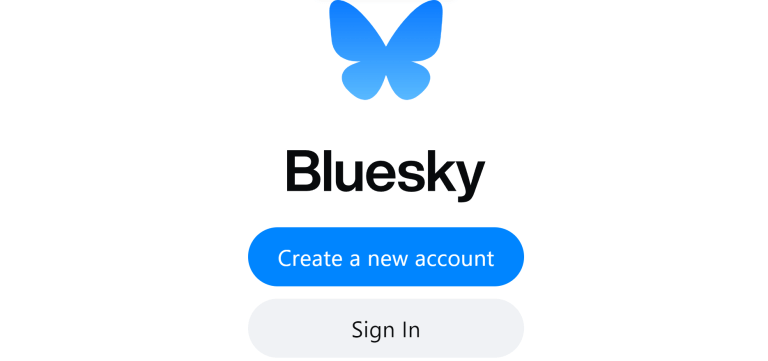
After initial surge, daily usage remains elevated – but a small fraction of the audience of Threads, let alone X or bigger social networks
Daily active users of Bluesky’s mobile app more than tripled after the company dropped the requirement for new users to have an invite code, based on Similarweb daily app usage estimates for Android. The bsky.app website experienced a similar surge in traffic.
After opening up registration, Bluesky said it had added 1 million user accounts, for a total of four million, and that the number was continuing to grow. Similarweb’s estimates attempt to show how much people are actually using the service – and they do provide confirmation of a pent-up demand for access to Bluesky. On the other hand, Bluesky’s audience is still tiny compared with X (formerly Twitter) – or even compared with Threads, the app from Meta that benefited from allowing users to create a Threads account with the same password they use for Instagram.
Bluesky is one of the apps considered best positioned to provide an alternative to X (formerly Twitter) for those who dislike Elon Musk’s management of the platform
On its peak day so far, the number of active users on Bluesky was about 13% of that for Threads. However, until now Bluesky has been operating under self-imposed limits for slow growth while its engineers worked on issues such as scalability and content moderation.
Key takeaways
- On February 7, Bluesky had nearly 2 million active users on Android, compared with about 600,000 on an average day in recent weeks. In the US, where Similarweb has its best estimates for iOS and Android combined, Android users represent more than 40% of the audience for Bluesky.
- By February 10, the Android daily active user count had dropped to 1.5 million – compared with nearly 15 million for Threads and 92.9 million for X.
- The boom and bust pattern for Bluesky looks like an echo of what happened with Threads, which attracted 49 million daily users at its July 7 launch but saw that user count drop precipitously over the following days and weeks. On the other hand, we don’t know whether Bluesky’s active user growth has really stalled in the same way – we could be seeing a momentary pause before even greater growth.
Bluesky is a venture of Jack Dorsey, a co-founder and former CEO of Twitter, and incorporates some of the same ideas of decentralization (although not the same technical underpinnings) as the open source Mastodon. Although Mastodon has seen an influx of users over the past couple of years, its open source complexity and lack of corporate backing have limited its potential to grow into a consumer social network.
Meanwhile, Threads has announced plans to limit the spread of political speech on the platform, aiming to avoid controversy but also frustrating the former X/Twitter users (including journalists and political operatives) who want a place to engage in lively political discussion – just without what many consider the political bias and lack of filters on hate speech on X.
A sharp and promising spike in engagement
Our estimates do show a definite spike, although not necessarily a lasting one.
A similar pattern played out with traffic to the Bluesky website, which spiked when open registration was announced before subsiding over the following days.
Audience still tiny compared with Threads, let alone X
As significant as this spike in users was for Bluesky, it’s dwarfed by comparison with the success so far for Threads. At its initial launch, Threads capitalized on its status as a spinoff of Instagram to give itself a tremendous head start. Any Instagram user could turn on a Threads account using the same password as for Instagram, and many did at launch in early July.
Since then, usage has fallen, and engagement with the Threads app has been slowly recovering to a fraction of the users it attracted in those early days. However, it still has a big head start on Bluesky.
Zoom out a little further to include X in the picture, and the presence of Threads in this competition barely registers. The question is whether that could change, and how rapidly, now that Bluesky is no longer an invite-only app.
What about Mastodon? The open source social network based on a “fediverse” of social networking servers that share posts with each other experienced its own burst of popularity around the time that Elon Musk took control at Twitter, before it became X. Tracking Mastodon is challenging because of its distributed nature, but looking at two of the most significant web domains associated with the service allows us to see how much traffic has trailed off over the past year – and how it has been surpassed by Bluesky, even in the invite-only stage of its development.
A narrower gap in the US
Within the US, Bluesky has been somewhat more competitive with Threads, even during the months that it was invite-only. The chart below shows iOS and Android users combined for the US, on a monthly rather than daily basis.
We don’t yet have daily estimates to share for iOS and Android combined. In general, we’re curious to see whether Bluesky is able to narrow the gap and perhaps even overtake Threads – and, ultimately, X – in the coming months.
The Similarweb Insights & Communications team is available to pull additional or updated data on request for the news media (journalists are invited to write to press@similarweb.com). When citing our data, please reference Similarweb as the source and link back to the most relevant blog post or similarweb.com.
Contact: For more information, please write to press@similarweb.com.
Report By: David F. Carr, Senior Insights Manager
Disclaimer: All names, brands, trademarks, and registered trademarks are the property of their respective owners. The data, reports, and other materials provided or made available by Similarweb consist of or include estimated metrics and digital insights generated by Similarweb using its proprietary algorithms, based on information collected by Similarweb from multiple sources using its advanced data methodologies. Similarweb shall not be responsible for the accuracy of such data, reports, and materials and shall have no liability for any decision by any third party based in whole or in part on such data, reports, and materials.
Wondering what Similarweb can do for your business?
Give it a try or talk to our insights team — don’t worry, it’s free!
